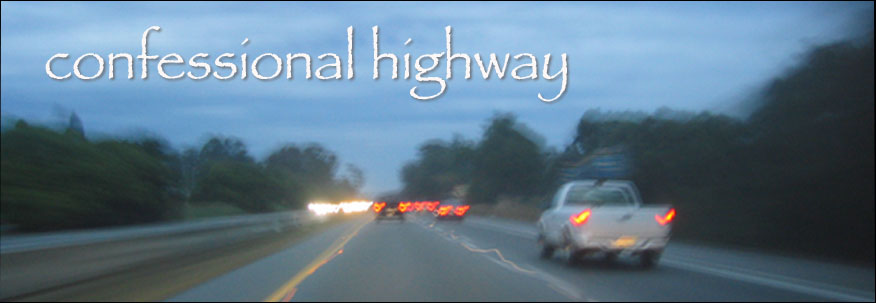“Don’t bark!”
Those were the first words out of my mouth when I heard the repeated honking of the far-off car. Not ‘honk’, but ‘bark’. Yes, a little Freudian slip, but then I realized that’s exactly what we’re doing when we repeatedly hit our horn. We’re simply barking, and it’s really not an effective form of communication. One hard jab can prevent a near accident, but the continual jabs just express anger. They seldom have any impact other than to make us feel that our irate voices have been heard.
I think there’s a better way.
In Los Angeles, we spend so much time stuck behind the wheel of our cars that we actually do need a method to communicate with others sharing the road. Why have we settled for one restrictive sound for all these years? Yes, we find ways to expand the language of the horn honk. The gentle tap means, “I don’t want to upset you, but, uh, the light has changed, so could you please go.” Succinctly, this mode contains a ‘please.’
The accident-avoiding honk is rightfully strident and aggressive. It either appears in the form of a harsh thrust onto the horn or the alternative of the long, drawn-out wail of a frightened hand bonding with the steering wheel. Your subconscious usually makes the choice depending upon how freaked out you are.
The horn honk that could use assistance is the one I call the ‘Let-me-tell-you-how-I-feel-after-the fact’ honk. The incident has passed, and we turn to our horn simply to vent our disgust with the offending driver. Perhaps he cut us off. We safely avoided a collision, but we want to criticize his driving and let him know how pissed we are. If we have the opportunity to pass this driver, we add a scowl and hope for humiliating eye contact. “That’ll show ‘em,” we congratulate ourselves.
No one wants to end up behind a driver honoring the speed limit, a number apparently selected to incite road rage. You feel as if you’re crawling like a snail, which inevitably leads to your being late, for you never factored in a law-abiding citizen. Sometimes we start with the polite horn tap, but if the driver doesn’t pick up the pace, we escalate to the ‘I-hate-you’ honk. If you succeed in passing this driver and see that it’s a little old lady or man hunched over the wheel, straining to see and comprehend road hazards, you may feel terribly guilty. However, indignation quickly replaces the guilt. “They shouldn’t be driving if they’re that old!” And then you realize that one day you’ll be that old and living in a city with a horrendous public transit system. You decide you better start hoarding your money so that you can afford a driver for when your eyesight and reflexes start to fail you.
Another rage-inciting driver is the one who refuses to use his turn signal as if he can’t be bothered. The only potent response here is the mighty middle finger. Horn honking doesn’t work in this case.
The ‘I-hate-you’ category extends a bit further and includes drivers completely absorbed on their cell phones, eating breakfast, applying make-up, and shaving. A newly added group is drivers navigating their iPods. L.A. drivers attempt to do far too much in their cars, but given that the number of vehicles occupying the roads is escalating like mating gerbils, we have little choice. We now move through the city at a painfully slow pace. L.A. natives over the age of thirty tearfully reminisce about their childhood when everything was “twenty minutes away.” Ah, what fond memories. Now we choose our friends purely by their geographic viability. “Yes, I love you, but you live in Pasadena. Let’s face it. This friendship is doomed.”
Cars have everything today. Navigational systems, DVD players, game system hook ups. If we’re going to be trapped in our vehicles for hours on end, we need a joyful way to communicate with those stuck alongside us. How about adding a few horn options on the steering wheel? If we can have differentiating ring tones on our cell phones, why not assorted horn honks for our cars? It would be like learning a new language, and that should silence all the critics who rant about how monolingual Americans are. We can all learn car talk. As it gets more personalized, you may even get to know a friend’s car’s greeting and respond with your own, “Hey, how are you?” No more gentle tapping here, not when that message can be easily confused with, “Move, please.”
A honk for every occasion. Now that’s something I could get behind.
Subscribe to:
Post Comments (Atom)


2 comments:
Ahh, memories. In the early 80's there was a brief flurry of paddle messaging (a paddle with flip-cards saying things like "Your Driving Sucks!" and "Thanks!"). I fondly remember my one-and-only "You're Cute" from a girl driving by in a VW.
At one point in Palo Alto, I found myself behind a Porsche at a stop sign with a lingering kiss going on between the two in the front-seat. I found my own horn alternative: after waiting a few moments, I rolled down my window and used a wolf whistle to great effect. It got a startled glance back, a smile, and a wave.
You are not going to believe this! My little sister just emailed me and asked me if I remembered what these little car paddles were called, because I used to have one way back when. So I do a google search for "car messages flip paddle" and I find this post!!!
Holy crap.
Post a Comment